
Have you ever dreamed of soaring through the sky in a helicopter? The thrill of piloting such a powerful machine can be incredibly enticing. But, like any specialized training, helicopter flight school can be quite expensive. So, how can you afford it? In this article, we will explore several options for financing your helicopter flight school dreams. By the end, you will have a better understanding of the options available to you and how to go about securing the funds necessary to pursue your passion for flying.
One option to consider is applying for scholarships specifically designed for aspiring helicopter pilots. Organizations such as the Helicopter Foundation International offer scholarships to help individuals cover the costs of flight training. These scholarships are often competitive, so it’s important to do your research and submit a strong application. Additionally, many flight schools themselves offer scholarships or grants to their students. Be sure to inquire about these opportunities when researching different flight school options.
Another option to explore is securing a loan to cover the costs of flight school. Many banks and financial institutions offer education loans that can be used for flight training. It’s important to thoroughly research and compare different loan options to find the best terms and interest rates available. Keep in mind that taking on a loan means you will have to repay the borrowed amount plus interest, so make sure you have a plan in place to cover those expenses once you have completed your training and are ready to enter the workforce.
Lastly, some individuals choose to save up money on their own to pay for flight school. This method may take longer, but it allows you to avoid taking on debt and gives you more freedom and flexibility in terms of choosing a flight school and training timeline. Consider creating a strict budget and saving a portion of your income specifically for flight school expenses. It may require sacrifices and discipline, but the satisfaction of knowing you worked hard and saved up to achieve your dream can be incredibly rewarding.
In conclusion, financing helicopter flight school can be challenging, but it is not impossible. By exploring options such as scholarships, loans, and personal savings, you can find a way to pay for your flight training. Remember to thoroughly research and consider all the options available to you before making a decision. With determination and careful planning, you can turn your dreams of becoming a helicopter pilot into a reality.
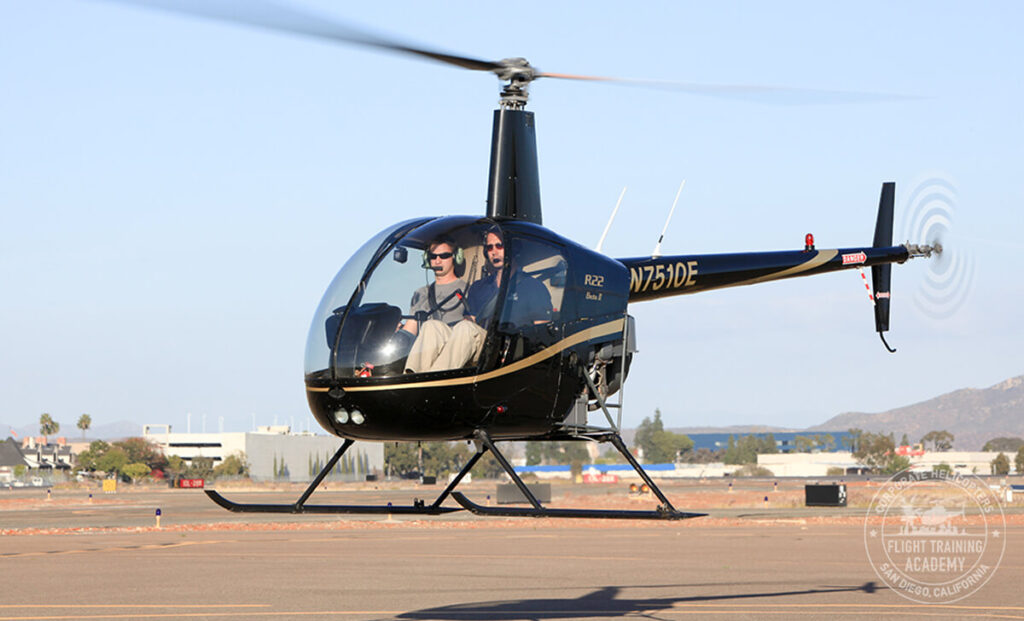
Financial Options
If you’ve set your sights on attending helicopter flight school, you’re probably aware of the high costs associated with this type of training. Fortunately, there are various financial options available to help you achieve your goal. In this article, we will explore the different ways you can pay for helicopter flight school, from student loans to employer sponsorship and personal savings. With the right financial plan in place, you can make your dream of becoming a helicopter pilot a reality.
Student Loans
One of the most common ways to finance your helicopter flight school education is through student loans. These loans can come from the federal government or private lenders. The first step is to fill out the Free Application for Federal Student Aid (FAFSA) to determine your eligibility for federal loans. Federal student loans usually offer more favorable interest rates and repayment options compared to private loans.
When researching private lenders, it’s important to compare the interest rates, repayment terms, and additional fees they may charge. Be sure to understand the terms and conditions of any loan before accepting it. Keep in mind that student loans must be repaid, so it’s essential to budget and plan for future loan repayments while you are still in school.
Scholarships
Another option to consider is scholarships. Scholarships are essentially free money that you do not have to repay. They can be merit-based, need-based, or awarded for specific purposes such as aviation. Many organizations and foundations offer scholarships for aspiring pilots, including those pursuing helicopter flight training.
To find scholarships, start by researching aviation-specific scholarships offered by organizations like the Aircraft Owners and Pilots Association (AOPA), the Helicopter Association International (HAI), and various flight schools. Additionally, check with local community organizations, rotary clubs, and other community-based groups that may offer scholarships. Remember to read the requirements and eligibility criteria carefully before applying.
Grants
Similar to scholarships, grants are another form of financial aid that does not need to be repaid. Grants are typically need-based and awarded by government entities, nonprofit organizations, or private foundations. While grants specifically targeted for helicopter flight training may be limited, you may be eligible for general education grants that can be used towards any educational expenses.
To explore grant opportunities, start by researching government grants offered by agencies like the U.S. Department of Education and state-sponsored grant programs. Additionally, look for grants offered by aviation-specific foundations and organizations. Grants can be highly competitive, so it’s important to apply early and ensure that your application is comprehensive and meets all the requirements.
Work-Study Programs
Work-study programs offer an opportunity to work part-time while attending flight school, allowing you to earn funds to help pay for your education. These programs are typically available to students who demonstrate financial need and are enrolled in an accredited institution. Work-study jobs can be both on-campus or off-campus and can range from administrative work to research assistance.
To participate in a work-study program, start by filling out the FAFSA form to determine your eligibility. Once you are approved for work-study, you can search for available positions through your school’s career services or financial aid office. Work-study programs not only offer financial support but also provide valuable work experience that can enhance your future career prospects.
Military Benefits
If you have a military background or are currently serving in the military, there are several benefits and programs available to help you pay for helicopter flight school.
GI Bill
The GI Bill is a well-known military benefit that provides education assistance to veterans and active-duty service members. Depending on your length of service and other factors, you may be eligible for various GI Bill programs, such as the Post-9/11 GI Bill, Montgomery GI Bill, or Reserve Educational Assistance Program (REAP). These programs can cover a significant portion of your flight school tuition and other educational expenses.
To determine your eligibility and explore the different GI Bill programs, visit the official GI Bill website or contact your local Veterans Affairs (VA) office. Be sure to understand the specific requirements and benefits of each program to make the most of this military benefit.
Tuition Assistance Program
The Tuition Assistance Program (TAP) is another military benefit that can help cover your helicopter flight school expenses. TAP is available to active-duty service members and some reservists, providing financial assistance for voluntary, off-duty education programs. Each branch of the military has its own policies and procedures regarding TAP, so it’s important to consult your education services officer or military counselor to understand your options.
TAP usually covers a portion of your tuition costs, up to a certain limit per fiscal year. Keep in mind that TAP funds may be limited, so it’s essential to apply early and secure your funding before starting flight school.
Post 9/11 GI Bill
The Post-9/11 GI Bill is a specific program within the GI Bill that provides enhanced educational benefits to eligible service members and veterans who served on active duty after September 10, 2001. This program offers a range of benefits, including payment of tuition and fees, a monthly housing allowance, and a stipend for books and supplies.
To qualify for the Post-9/11 GI Bill, you must have served at least 90 days of active duty after September 10, 2001, or have been honorably discharged with a service-connected disability after serving 30 continuous days. You can learn more about the eligibility criteria and benefits by visiting the official GI Bill website or contacting your local VA office.
Veterans Vocational Rehabilitation
If you have a service-connected disability, you may be eligible for Veterans Vocational Rehabilitation (VR) assistance. This program provides disabled veterans with education and training services to help them overcome barriers to employment. VR benefits can cover the cost of helicopter flight training, as well as related expenses such as books, supplies, and licensing fees.
To explore VR benefits, reach out to your local VA office and speak with a Vocational Rehabilitation Counselor (VRC). The VRC will help you determine your eligibility and guide you through the application process.
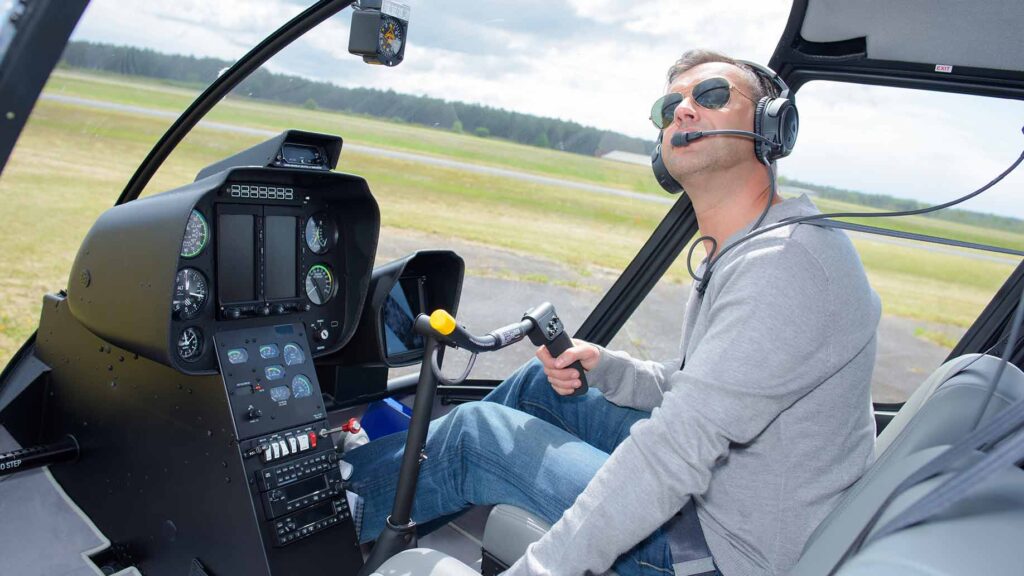
Employer Sponsorship
Employer sponsorship is another viable option to consider when it comes to paying for helicopter flight school. Many employers, particularly in the aviation industry, offer tuition reimbursement programs or may be willing to sponsor your flight training in exchange for a work commitment. Establishing a partnership with an employer can not only provide financial assistance but also create potential employment opportunities in the future.
Finding Sponsorship Opportunities
To find sponsorship opportunities, start by researching aviation companies, airlines, and helicopter operators in your area. Explore their websites, careers pages, and social media platforms to see if they offer any sponsorship or tuition reimbursement programs. Additionally, reach out to industry associations and attend aviation career fairs and networking events to connect with potential sponsors.
Negotiating Sponsorship Agreements
When approaching potential sponsors, it’s essential to present yourself as a motivated and dedicated candidate. Highlight your passion for aviation, your commitment to pursuing a career as a helicopter pilot, and the potential benefits you can bring to the company. Be prepared to negotiate the terms of the sponsorship agreement, including the duration of the commitment, the financial assistance provided, and any work obligations.
Employer Tuition Reimbursement Programs
Some employers have formal tuition reimbursement programs in place to support their employees’ professional development. These programs typically require you to pay for your flight training upfront and reimburse you for the approved expenses upon successful completion of the program. Check with your employer’s human resources department to see if they offer tuition reimbursement and what the specific requirements are.
Remember that employer-sponsored programs often come with certain conditions, such as a minimum employment commitment or a required grade point average. Be sure to read and understand the terms of the program thoroughly before accepting any financial assistance.
Personal Savings
If you have been diligently saving money, you may consider using your personal savings to pay for helicopter flight school. Utilizing your existing savings can help reduce the amount of money you need to borrow or the financial burden of repaying loans after completing your training. Here are some steps to consider when using personal savings:
Creating a Savings Plan
Before you start flight school, assess your current financial situation and set realistic savings goals. Calculate the total cost of your helicopter flight training, including tuition, books, equipment, and living expenses. Then, determine how much you can comfortably save each month and develop a budget accordingly.
Consider making automatic transfers from your checking account to a separate savings account designated for your flight school expenses. This will ensure that you consistently save without the temptation of spending the money on other things.
Setting Aside a Portion of Income
To maximize your savings, consider setting aside a portion of your income specifically for your flight school expenses. This may require making some sacrifices and cutting back on unnecessary expenses. Evaluate your current spending habits and identify areas where you can reduce or eliminate expenses, such as dining out, entertainment, or non-essential purchases.
By being disciplined and making a conscious effort to save, you can gradually build up your funds and make progress towards financing your helicopter flight training.
Utilizing Existing Savings
If you already have savings, consider utilizing a portion of those savings to pay for your helicopter flight school expenses. Evaluate your current financial situation, including your emergency fund and your future financial goals, before making the decision to use your savings.
Keep in mind that using your savings now may limit your ability to respond to unexpected financial needs in the future. It’s important to strike a balance between financing your education and maintaining a healthy financial cushion.
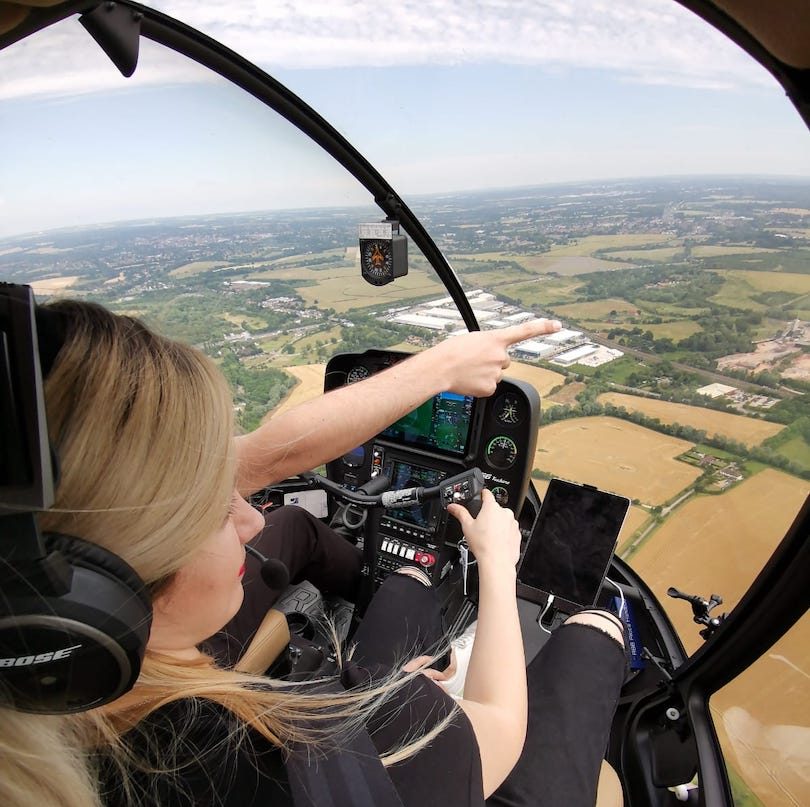
Crowdfunding
Crowdfunding has become a popular way to raise funds for various purposes, including education. By creating a compelling campaign and sharing your story, you can reach out to friends, family, and even strangers who may be willing to contribute towards your helicopter flight training expenses.
Setting Up a Crowdfunding Campaign
To set up a successful crowdfunding campaign, start by researching popular crowdfunding platforms like Kickstarter, GoFundMe, or Indiegogo. Each platform has its own set of guidelines and fees, so be sure to carefully read the terms and conditions before creating your campaign.
When creating your campaign, be sure to clearly explain why you are seeking financial assistance for your flight training. Share your background, your passion for aviation, and your aspirations for becoming a helicopter pilot. Use compelling photos and videos to grab the attention of potential donors and make your campaign more engaging.
Promoting the Campaign
Once your crowdfunding campaign is live, it’s essential to promote it to maximize your chances of success. Utilize social media platforms like Facebook, Twitter, and Instagram to reach a wider audience. Share your campaign link with friends, family members, and colleagues, and encourage them to share it with their networks as well.
Consider reaching out to local media outlets, aviation publications, and influential bloggers to pitch your story. Getting media coverage can significantly boost your campaign’s visibility and lead to greater support.
Acknowledging and Thanking Supporters
As your crowdfunding campaign progresses, remember to regularly update your supporters on your progress. Share updates about your flight school journey, including any achievements or milestones you have reached. Express gratitude to all those who have contributed, and consider offering incentives or thank-you gifts to show your appreciation.
Part-Time Jobs
Working part-time while attending helicopter flight school can help you cover your living expenses and potentially reduce your reliance on loans or other forms of financial assistance. Here are some factors to consider when pursuing part-time employment:
Finding Part-Time Employment
When searching for part-time employment, start by checking with your flight school or the local aviation community. Flight schools may have job boards or connections with local employers who are looking for aviation-related part-time help. Reach out to flight school instructors, alumni, and other aviation professionals to inquire about job opportunities or referrals.
Additionally, consider exploring jobs in other industries that offer flexible schedules and align with your class schedule. Retail, hospitality, and customer service positions often have shifts available during evenings and weekends, allowing you to work while still attending flight school during regular business hours.
Balancing Work and School
While working part-time can help alleviate some financial pressure, it’s important to find a balance between your employment and your flight school commitments. Be sure to prioritize your studies and allocate sufficient time for flight training, homework, and exam preparation.
Communicate openly with your supervisor or employer about your availability and any scheduling constraints. Some employers may be understanding and willing to accommodate your flight school schedule.
Saving and Budgeting Income
When working part-time, it’s important to be financially conscious and maximize your income. Develop a budget that outlines your income and expenses, and identify areas where you can save money. Consider tracking your expenses and identifying areas where you can cut back, such as dining out or entertainment expenses.
With proper budgeting and saving, you can make the most of your part-time income and reduce the need for additional sources of financial assistance.
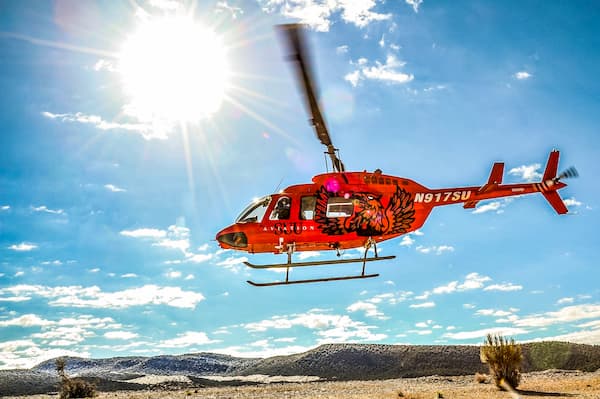
Family Support
If you are fortunate enough to have a supportive family, they can play a crucial role in helping you finance your helicopter flight school education. Here are some steps to consider when discussing financial contributions with your family:
Discussing Financial Contributions with Family
Initiate an open and honest conversation with your family members about your ambitions to attend helicopter flight school. Explain your passion for aviation, the potential career opportunities, and the financial obligations associated with flight training. Discussing your plans and goals with your family can help them understand your commitment and may encourage their support.
Developing a Family Support Plan
Once you have discussed your aspirations with your family, develop a family support plan that outlines their potential contributions and expectations. For example, your family may be willing to provide financial assistance for tuition or living expenses. Alternatively, they may offer other forms of support such as providing accommodation, helping with transportation, or covering other essential expenses.
Be clear about your family’s expectations and discuss any conditions or obligations attached to their support. Create a written agreement that outlines the agreed-upon terms to avoid misunderstandings or conflicts in the future.
Utilizing Family Resources
Aside from financial contributions, your family may have other resources that can help reduce your overall expenses. For example, if you have a family member who is a pilot or has connections in the aviation industry, they may be able to provide guidance, mentorship, or networking opportunities.
Leveraging your family’s resources can not only save you money but also enhance your educational experience and future career prospects.
Alternative Financing
If traditional financing options like student loans or scholarships are not sufficient to cover your helicopter flight school expenses, there are alternative financing options worth considering.
Private Loans
Private loans are offered by banks and other financial institutions and can be used to cover educational expenses. Unlike federal student loans, private loans typically have higher interest rates and do not offer as many borrower protection options. However, they may be a viable option if you have exhausted all other avenues.
When considering private loans, shop around and compare interest rates, repayment terms, and additional fees. Consult with a financial advisor to understand the implications of taking on private loans and ensure that you can afford the monthly payments after graduation.
Leasing Helicopter for Training
Another alternative financing option is to lease a helicopter instead of purchasing one outright. This allows you to spread out the cost of owning a helicopter over a certain period of time, making it more affordable during your flight training.
Leasing options vary, and it’s important to carefully consider the terms and conditions before committing to a lease agreement. Consider factors such as monthly lease payments, maintenance costs, insurance requirements, and the duration of the lease. Consult with experienced pilots or industry professionals to gain insights and seek their recommendations.
Income Share Agreements
Income Share Agreements (ISAs) are another alternative financing option gaining popularity in the education space. With an ISA, an investor or institution provides the funds for your helicopter flight training in exchange for a percentage of your income for a set period after you graduate and start working.
ISAs can be a viable option if you are confident about your future earning potential as a helicopter pilot. However, it’s important to thoroughly understand the terms and conditions of the ISA, including the repayment terms and the percentage of your income that will be deducted.
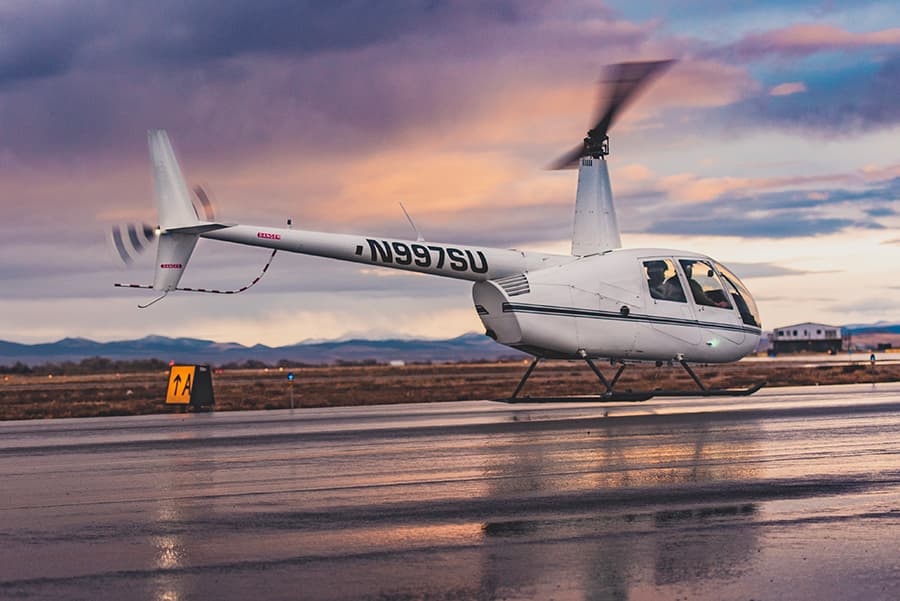
Financial Planning
Regardless of the financing options you choose, it’s crucial to engage in financial planning to effectively manage your expenses, debt, and future earning potential.
Creating a Budget
Creating a budget is one of the most important steps in financial planning. Start by listing all your income sources and your anticipated expenses, including tuition, flight training fees, housing, transportation, food, and personal expenses. Be sure to include savings as one of your expense categories.
Track your actual expenses regularly and make adjustments to your budget if necessary. By closely monitoring your financial situation, you can identify areas where you may be overspending and make conscious decisions to align your spending with your financial goals.
Tracking Expenses
Tracking your expenses is an essential part of financial planning. It helps you understand where your money is going and identify potential areas for improvement. Utilize personal finance apps or software to record your expenses and categorize them accordingly.
Consider reviewing your expenses on a monthly basis to assess how well you are sticking to your budget. This will help you identify any patterns or areas where you can make adjustments to save more money or pay down debt more aggressively.
Working with a Financial Advisor
If you are unsure about your financial planning or need assistance in managing your finances, consider working with a financial advisor. A financial advisor can help you assess your financial situation, develop a realistic budget, and provide advice on the best ways to achieve your financial goals.
Look for a reputable financial advisor with experience in assisting individuals pursuing aviation careers. They will have a deep understanding of the financial challenges specific to flight school and can provide guidance tailored to your circumstances.
Entrepreneurship
If you have an entrepreneurial spirit, starting a side business can be an effective way to generate additional income to support your helicopter flight school expenses.
Starting a Side Business
Starting a side business can provide a source of income that can be used toward your flight training. Assess your skills, interests, and talents to identify potential business ideas that align with your strengths. For example, you could offer drone photography services, teach aviation-related courses, or sell aviation merchandise online.
Research the market and competition to ensure there is demand for your products or services. Develop a business plan that outlines your target market, marketing strategies, and financial projections. Starting a side business requires dedication and hard work, but it can provide a fulfilling way to finance your education while gaining valuable entrepreneurial experience.
Generating Additional Income
In addition to starting a side business, there are other ways to generate additional income while attending helicopter flight school. Consider taking on freelance work or part-time jobs during breaks in your flight training schedule. Utilize your skills or hobbies to find opportunities for extra income, such as photography, graphic design, or tutoring.
Explore online platforms that connect freelancers with clients, such as Upwork or Freelancer. These platforms can provide a steady stream of projects that you can complete on a flexible schedule.
Investing Profits into Flight School
As your side business or additional income streams start to generate profits, consider reinvesting a portion of those profits into your flight school expenses. By funneling your earnings directly back into your education, you can accelerate your progress towards completing your flight training.
Ensure that you are tracking your income and expenses accurately to take advantage of any tax benefits available to self-employed individuals or business owners. Consult with a tax professional or financial advisor to optimize your tax strategy.
International Students
If you are an international student looking to attend helicopter flight school in the United States, there are specific financial options and considerations to keep in mind.
International Scholarships
Some aviation organizations and flight schools offer scholarships specifically for international students. These scholarships can provide financial assistance toward your flight school tuition and other educational expenses. Research aviation-specific scholarships for international students and review the eligibility criteria and application procedures carefully.
Additionally, check with the education or aviation departments of your home country to see if they offer any scholarships or grants for citizens studying abroad. Some countries have programs to support their citizens’ education and may offer financial assistance for flight training.
Education Loans for International Students
International students may also have the option to apply for education loans specifically designed for non-U.S. citizens. These loans are typically offered by private lenders or international financial institutions. When researching loan options, consider factors such as interest rates, repayment terms, and any additional fees or requirements.
Be sure to carefully read and understand the loan terms before accepting any financial offers. Consult with a financial advisor or your flight school’s financial aid office for guidance specific to your situation.
Visa and Immigration Requirements
Before starting helicopter flight school as an international student, it’s crucial to understand the visa and immigration requirements. In addition to the financial aspect of attending flight school, you need to ensure that you have the necessary visa and documentation to legally study and train in the United States.
Consult with your local U.S. embassy or consulate for guidance on visa requirements and application procedures. Additionally, reach out to your flight school’s admissions or international student office to confirm the necessary paperwork and steps to obtain the required visas.
Government Programs
Various government programs provide financial assistance for education and vocational training, including those related to helicopter flight school. Here are some government programs to consider:
Federal Student Aid
The U.S. Department of Education offers federal student aid programs that can help fund your helicopter flight school education. By completing the FAFSA form, you can determine your eligibility for federal grants, work-study programs, and student loans. Be sure to submit your FAFSA application early to maximize your chances of receiving financial assistance.
To explore federal student aid programs, visit the official Federal Student Aid website or contact your flight school’s financial aid office for guidance.
State-Sponsored Programs
Many states offer financial aid programs specifically designed to support residents pursuing higher education or vocational training. These programs may include grants, scholarships, or tuition reimbursement programs. Research the financial aid programs offered by your state’s education department or visit the official state government website for more information.
Keep in mind that state-sponsored programs may have specific eligibility criteria or application deadlines, so be sure to carefully review the requirements and deadlines to avoid missing out on potential financial assistance.
Job Corps
Job Corps is a federal program that provides vocational training, including aviation-related training, to eligible young adults. If you are between the ages of 16 and 24 and meet certain income and educational requirements, you may be eligible to participate in the Job Corps program.
Job Corps offers tuition-free training, housing, meals, and a living allowance. To explore aviation-related training opportunities through the Job Corps program, visit their official website or contact your local Job Corps center for more information.
Financial Assistance Organizations
In addition to traditional financial aid options, there are various aviation-specific foundations and non-profit organizations that provide financial assistance to aspiring pilots. These organizations aim to support the next generation of aviators by offering scholarships and grants. Here are some avenues to consider:
Aviation-Specific Foundations
Many aviation organizations and foundations offer scholarships and grants for aspiring pilots. For example, the Whirly-Girls International Helicopter Scholarship Foundation, the Helicopter Foundation International, and the Women in Aviation International all offer various scholarships and financial aid programs.
Research aviation-related foundations and organizations to identify potential sources of financial assistance. Review the eligibility criteria, application deadlines, and other requirements before applying.
Non-Profit Organizations
Non-profit organizations dedicated to promoting aviation and educational opportunities may also offer financial assistance to aspiring helicopter pilots. For example, the Experimental Aircraft Association (EAA) offers various scholarships for individuals pursuing aviation careers. Explore non-profit organizations in the aviation industry to learn about the financial aid options available.
Networking with Industry Professionals
Networking with industry professionals can provide valuable insights into available financial assistance options. Attend aviation trade shows, conferences, and networking events to connect with industry leaders and potential sponsors. Engage in conversations and seek guidance from experienced pilots, instructors, and aviation enthusiasts who may have knowledge of scholarship or sponsorship opportunities.
Building a strong professional network can open doors to funding opportunities that may not be widely publicized. Be proactive in attending industry events and staying connected with aviation professionals.
Conclusion
Pursuing a career in helicopter aviation requires a significant financial commitment, but with the right approach and resources, it is attainable. From traditional financial options like student loans and scholarships to alternative financing methods and employer sponsorship, there are numerous avenues to explore. Taking the time to research and plan your financial strategy, including creating a budget and exploring all available resources, will ensure that you can afford your helicopter flight school education. Remember, with dedication, perseverance, and the right financial plan, you can make your dream of becoming a helicopter pilot a reality.

